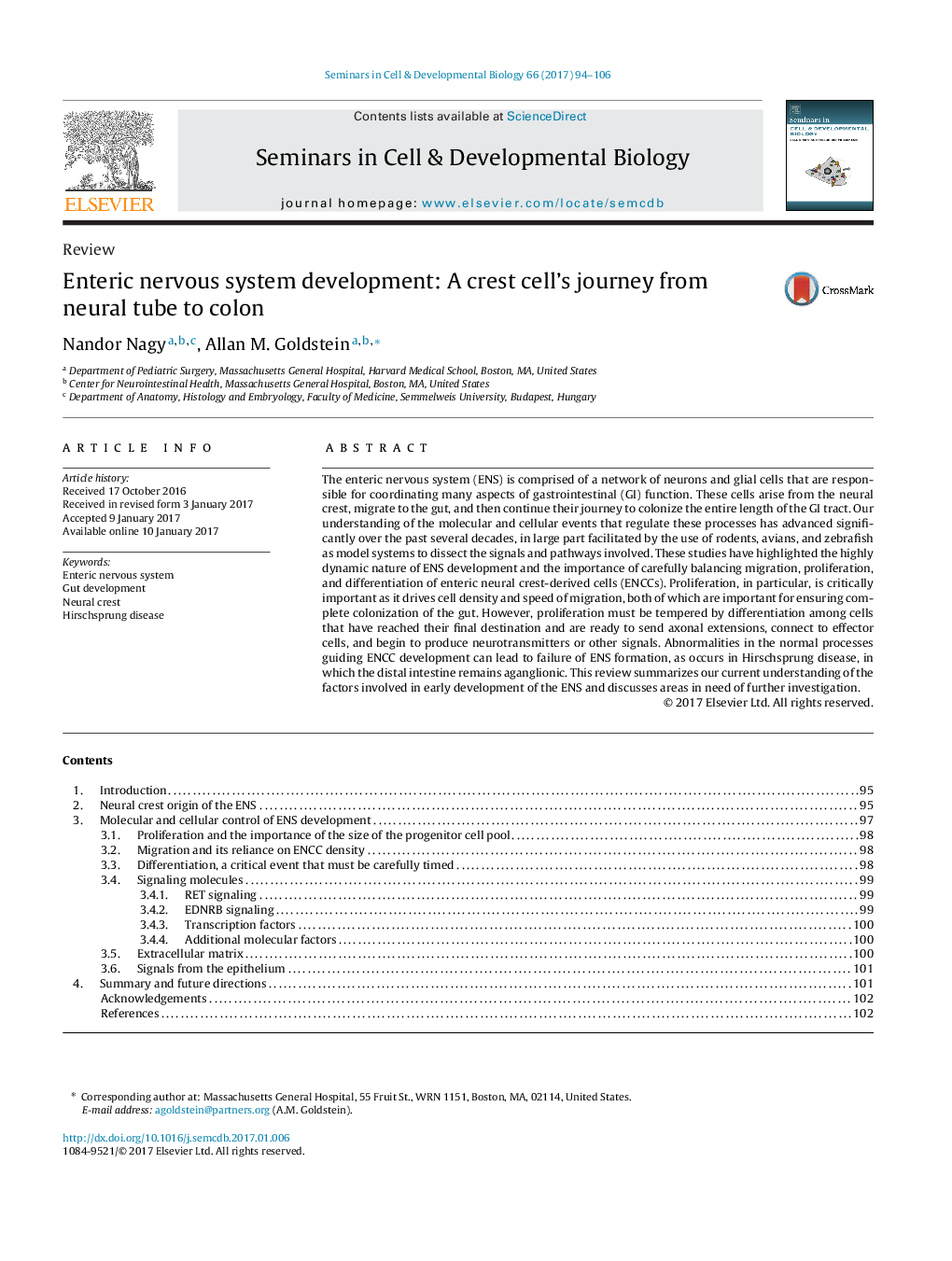| Article ID | Journal | Published Year | Pages | File Type |
|---|---|---|---|---|
| 5534885 | Seminars in Cell & Developmental Biology | 2017 | 13 Pages |
â¢Enteric nervous system (ENS) develops from neural crest-derived cells.â¢Enteric neural crest cells (ENCCs) migrate along the developing gut to form two plexuses of neurons and glia.â¢ENS development relies on reciprocal interactions between ENCCs and their environment.â¢Defects in ENS development can lead to congenital neurointestinal diseases.
The enteric nervous system (ENS) is comprised of a network of neurons and glial cells that are responsible for coordinating many aspects of gastrointestinal (GI) function. These cells arise from the neural crest, migrate to the gut, and then continue their journey to colonize the entire length of the GI tract. Our understanding of the molecular and cellular events that regulate these processes has advanced significantly over the past several decades, in large part facilitated by the use of rodents, avians, and zebrafish as model systems to dissect the signals and pathways involved. These studies have highlighted the highly dynamic nature of ENS development and the importance of carefully balancing migration, proliferation, and differentiation of enteric neural crest-derived cells (ENCCs). Proliferation, in particular, is critically important as it drives cell density and speed of migration, both of which are important for ensuring complete colonization of the gut. However, proliferation must be tempered by differentiation among cells that have reached their final destination and are ready to send axonal extensions, connect to effector cells, and begin to produce neurotransmitters or other signals. Abnormalities in the normal processes guiding ENCC development can lead to failure of ENS formation, as occurs in Hirschsprung disease, in which the distal intestine remains aganglionic. This review summarizes our current understanding of the factors involved in early development of the ENS and discusses areas in need of further investigation.
